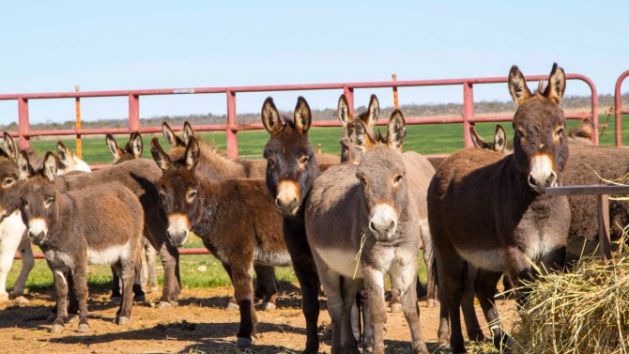In what might be tentatively called a “step in the right direction,” the DNC has voted to strip superdelegates of some of their power, but it hasn’t gotten rid of them entirely. As I understand it, the superdelegates will no longer be allowed to vote on the first convention ballot, but can vote in subsequent ballots.
They did not say they would stop the practice of counting superdelegates as part of the delegate total while the primaries are ongoing, which gave us graphics like this in 2016:
Establishment Dems still refuse to see why that bothered people.
It also bothers me that no one seems to remember that Clinton did not win enough pledged delegates to secure the nomination on the first ballot in 2016. I keep reading that she did, but she didn’t. She needed 2,383 delegates to win the nomination and went into the convention with 2,220. She had the nomination on the first ballot because she had nearly all of the superdelegates. If the new rule had been in place in 2016, I assume the DNC would have just quickly run the second vote, and nothing would have changed. But it’s odd to me that history has been rewritten so quickly, including by the usually careful Vox:
They [superdelegates] will get to take part in subsequent rounds of voting, but historically, that wouldn’t have mattered: The Democratic nominee has been settled on the first ballot of every convention since the 1970s.
Superdelegates and their power within the Democratic Party has been an issue eating at progressives since the 2016 election, when Sanders supporters complained that superdelegates skewed the nomination unfairly toward Clinton. (Superdelegates did not decide the Democratic nomination for Clinton — she got more votes than Sanders and won the pledged delegate total.)
With this rule change no doubt Clinton would have had the nomination on the second ballot in 2016, but not the first. It would have gone to the second ballot.
However, I think the important thing is that the superdelegate totals are not counted by anybody before the convention. And the superdelegates should not be pledged to a candidate in advance, although I admit that’s probably not enforceable. That’s why this is a half measure that might not prevent another party meltdown in the future.
Perez and other delegate reform supporters succeeded in weakening the establishment opposition by giving it more time to protest. But the opposition made one final push, picking up on a theme that the Congressional Black Caucus had aired last month — that to take away the votes of black superdelegates was to effectively suppress them.
Um, aren’t most of the superdelegates white?
The unofficial leaders of that faction, former party chair Don Fowler and California DNC member Bob Mulholland, are white.
Of course they are. This was bullshit.



I recommend this diary over at Kos:
https://m.dailykos.com/stories/2018/8/25/1790598/-Nuts-amp-Bolts-Inside-the-Democratic-Party-The-DNC-passes-major-reforms
An accompanying rule was adopted that said a candidate with 60% or more of pledged delegates becomes the nominee.
And I think what Vox meant is Clinton won the majority of pledged delegates. Supers have always gone with the majority winner so I do not think the mistake an egregarious one.
The Democrats will be trying to snatch defeat from the jaws of victory once more if they don't find a way to show some openness to their potential voters. And they had best find some way to get comfortable with progressive ideas, because otherwise they will be abandoned permanently. The young will not wait.
Maybe they're wondering how much their legacy will be tarnished should they decide to not play progressive and take some K Street cash instead?
Yank chains, raise money, make up crappy surveys, goad others into filling out crappy surveys, raise more money, waste some money, ignore young members and their issues, misinterpret survey data, and stumble into the future. These are the things that make a great Democrat, and we cannot lose sight of them. That is why I will never be a great Democrat or a superdelegate. They do not want me as a superdelegate anyway as I could not be trusted to always vote with the majority of the pledged delegates. That's because if I was comfortable being a lackey, I'd be a Republican.